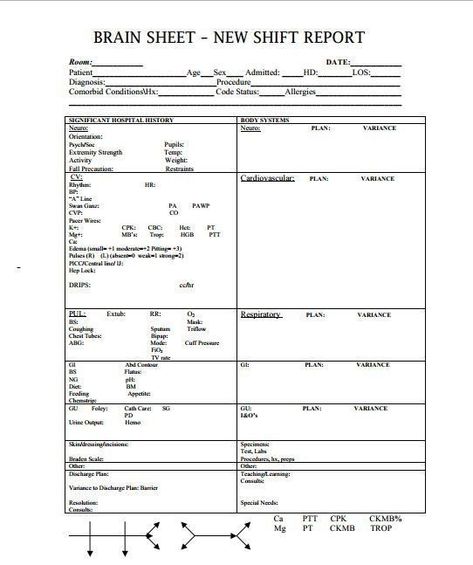
Popular Templates: Free and Accessible for Your Business Success
In today’s fast-paced business environment, efficiency and effectiveness are paramount. Leveraging templates can streamline your workflows, improve productivity, and enhance the overall quality of your deliverables. Recognizing the significance of templates, numerous resources now provide a vast array of free templates to cater to diverse business needs.
This comprehensive article delves into the world of popular templates, exploring their types, benefits, and where to find them. Additionally, we address frequently asked questions to guide you in selecting and using templates effectively.
Types of Popular Templates
The spectrum of available templates is vast, encompassing a wide range of business functions and applications. Here are some of the most commonly used templates:
1. Document Templates:
- Resumes and CVs: Create polished and professional resumes and CVs that showcase your skills and experience.
- Cover Letters: Craft compelling cover letters that complement your resume and increase your chances of landing an interview.
- Business Plans: Develop comprehensive business plans that outline your business goals, strategies, and financial projections.
- Project Proposals: Structure winning project proposals that clearly define project scope, objectives, and deliverables.
- Contracts and Agreements: Draft legally compliant contracts and agreements that protect your interests and establish clear expectations.
2. Spreadsheet Templates:
- Financial Statements: Monitor your business’s financial performance with templates for income statements, balance sheets, and cash flow statements.
- Budgets: Create detailed budgets to plan and control your expenses effectively.
- Invoices: Generate professional invoices that accurately reflect your products or services and payment terms.
- Project Tracking: Track project progress, monitor timelines, and allocate resources with ease.
- Data Analysis: Perform data analysis and draw meaningful insights using pre-formatted spreadsheet templates.
3. Presentation Templates:
- Pitch Decks: Design visually appealing pitch decks that effectively convey your business concept or idea to investors or clients.
- Sales Presentations: Create engaging sales presentations that persuade customers and close deals.
- Training Materials: Develop informative training materials, such as PowerPoint slides and handouts, to enhance employee knowledge and skills.
- Marketing Presentations: Craft impactful marketing presentations that showcase your products or services and captivate your audience.
- Webinars: Host professional webinars with templates that provide a structured framework and engaging visuals.
4. Design Templates:
- Social Media Graphics: Create eye-catching social media graphics that promote your brand and engage your followers.
- Email Templates: Design professional email templates that enhance your email marketing campaigns and deliver a consistent brand experience.
- Flyers and Brochures: Produce high-quality flyers and brochures that effectively communicate your message and promote your business.
- Logos and Watermarks: Develop memorable logos and watermarks that represent your brand and strengthen your brand identity.
- Website Templates: Build responsive and visually appealing websites without the need for coding expertise.
Benefits of Using Templates
Incorporating templates into your business operations offers numerous benefits:
- Save Time: Pre-designed templates eliminate the need to start from scratch, saving you valuable time that can be allocated to other tasks.
- Maintain Consistency: Templates ensure consistency in formatting, layout, and content, presenting a professional and polished image across all your documents.
- Reduce Errors: Templates are often error-checked and formatted according to industry standards, minimizing the risk of mistakes.
- Enhance Productivity: By using templates, you can automate repetitive tasks, freeing up your time to focus on more strategic initiatives.
- Improve Communication: Templates provide a common framework for communication, ensuring that all parties involved are on the same page and understand the desired outcomes.
Where to Find Free Templates
Accessing free templates is easier than ever before, with numerous online resources available:
- Google Docs: Google Docs offers a comprehensive collection of templates for documents, spreadsheets, and presentations.
- Microsoft Office: Microsoft Office provides a wide range of templates compatible with Word, Excel, PowerPoint, and other applications.
- Canva: Canva specializes in design templates and offers a vast library of visually appealing options for social media graphics, presentations, flyers, and more.
- Template.net: Template.net hosts a vast collection of templates covering various categories, including business, marketing, education, and design.
- Vertex42: Vertex42 provides a curated selection of high-quality templates for Google Docs, Google Sheets, and Google Slides.
Tips for Selecting and Using Templates
To maximize the benefits of using templates, consider the following tips:
- Choose the Right Template: Select templates that align with your specific business requirements and industry standards.
- Customize Wisely: While templates provide a solid foundation, don’t hesitate to customize them to reflect your brand and unique needs.
- Review Before Sharing: Thoroughly review your customized templates before sharing them with others to ensure accuracy and consistency.
- Update Regularly: Keep your templates up to date with the latest industry trends and best practices.
FAQs
Q1: Are free templates safe to use?
A1: Generally, free templates are safe to use, provided they are obtained from reputable sources. However, it is advisable to scan the templates for viruses or malware before using them.
Q2: Can I edit and customize free templates?
A2: Yes, most free templates are editable and customizable. You can modify the text, images, and formatting to suit your specific needs.
Q3: Can I use free templates for commercial purposes?
A3: In most cases, free templates can be used for both personal and commercial purposes. However, it is essential to check the license or terms of use associated with the template to ensure compliance.
Q4: What is the best way to manage templates?
A4: Consider creating a centralized repository or folder to store your templates and ensure easy access when needed.
Q5: How can I create my own templates?
A5: Most word processing and spreadsheet applications allow you to save your customized documents or spreadsheets as templates for future use.
Conclusion
In today’s dynamic and competitive business landscape, leveraging





